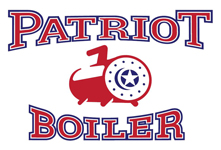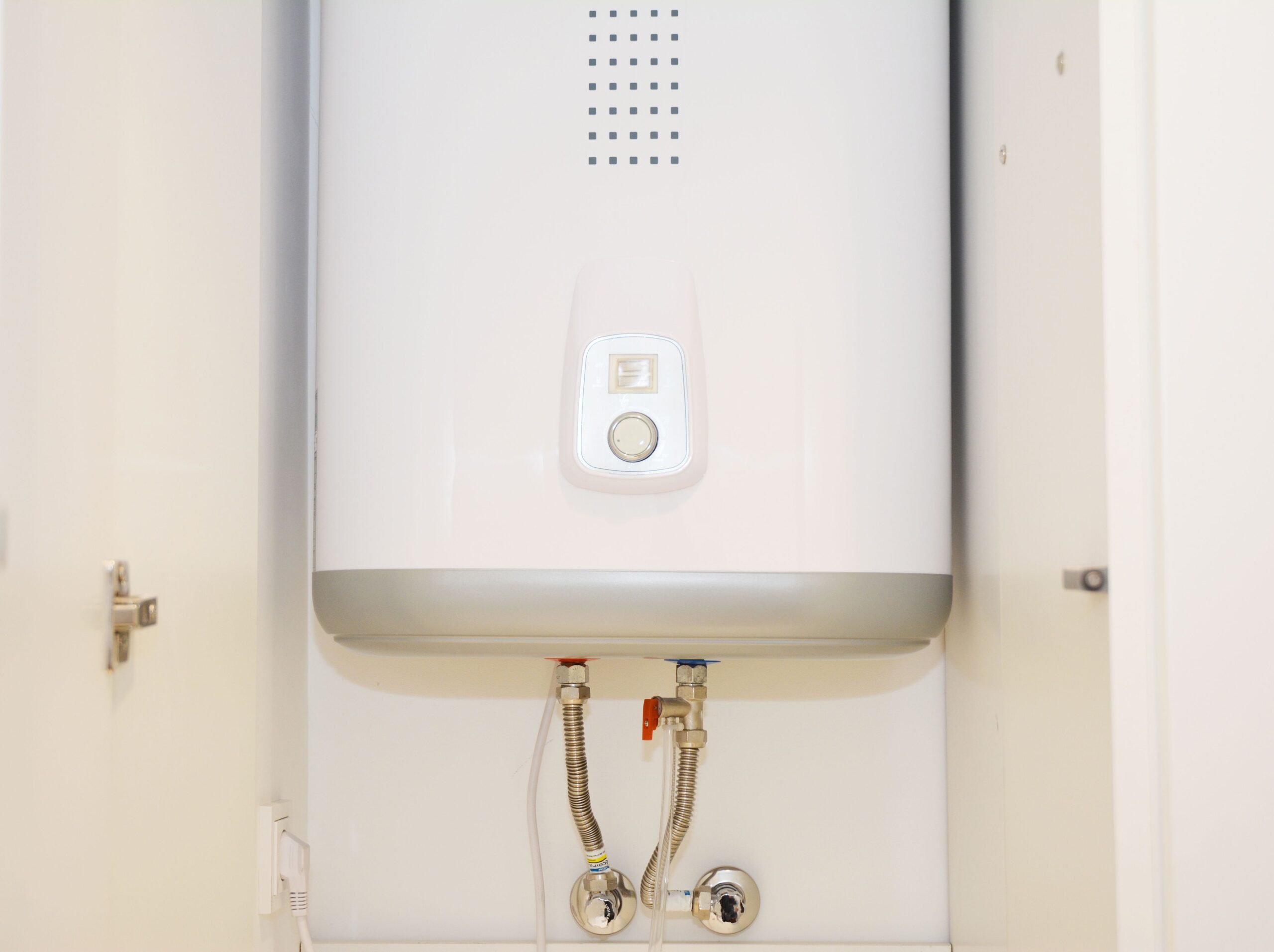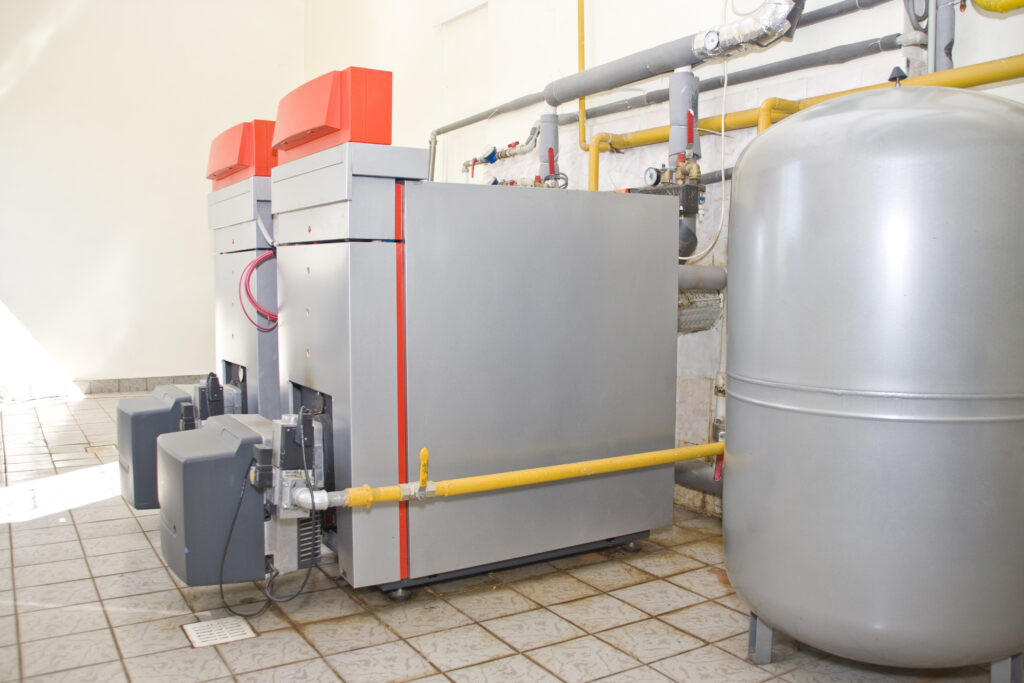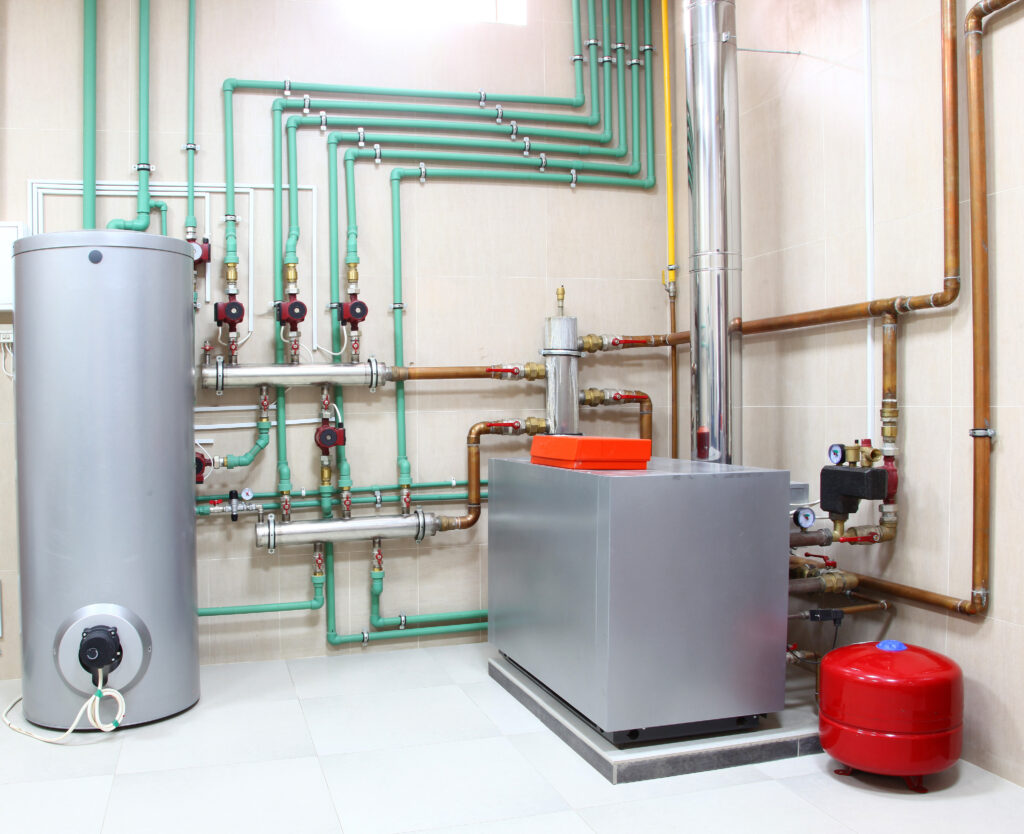It might be challenging to pick the ideal boiler. How can you select the ideal condensing boiler for your house or building? To make things a bit easier for you, we’ve put up this helpful guide to explain the most energy-efficient boiler type available right now.
We all need to embrace the idea of effectively heating our houses or buildings. Condensing boilers, in particular, are made to heat your house or building as effectively as possible.
What Is a Condensing Boiler
So what exactly is a condensing boiler, and how does it stack up against the alternatives? This article will walk you through its procedures and explain why it’s so environmentally good for your house or building and the planet.
Condensing boilers provide higher outputs, are more energy-efficient than non-condensing boilers, and can help you save money.
An oil- or gas-fired condensing boiler was created to increase energy efficiency. This is accomplished by turning the heat produced by water vapor condensation into waste gas heat. The quantity of usable heat that a condensing boiler generates and the fact that it can reach an energy efficiency of over 90% are the only things that set it apart from a non-condensing boiler.
What’s the process of a condensing boiler?
The operation of a condensing boiler is the same. Still, it has additional parts and capabilities to collect some of the heat from the exhaust gases and conserve and reuse energy. As a result, it becomes significantly more efficient, as it does not necessitate using additional gas and energy to compensate for the heat lost.
Additional components include a sizable heat exchanger surface or two heat exchangers. This energy is recovered when the overheated vapor passes through the heat exchanger, and the fog begins to cool somewhat at this stage.
A condensing boiler heats water by burning gas akin to conventional heating systems, producing carbon dioxide and water vapor. In contrast to traditional heating, traditional condensing boilers feature a significantly bigger heat exchanger that recycles the heat that would be lost via the flue in flue cases.
When cooled to a sufficiently low temperature (known as the dewpoint temperature), the vapor condenses and transforms into a liquid. At this point, condensing boilers becomes more challenging. The ingredients in this liquid are corrosive. Whatever it touches, like your chimney or the heat exchanger, will deteriorate.
When ignited, your boiler will start burning using either gas or oil as fuel. In the process, it feeds the primary heat exchanger with heat from the burner. To raise the temperature, hot air passes through the heat exchanger and is held here for as long as feasible. Then, it will transfer this heat to your radiators.
Other boilers do not have a separate condensing section through which the heat passes.
Warm air condenses when it does this, forming droplets of water vapor, which are subsequently removed and sent to a drain for disposal. A condensing boiler’s key benefit is that no other boiler will have this efficiency level.
To prevent heat loss, condensing boilers are intended to recover more heat. In an older boiler, the heat that exits the chimney might reach temperatures of more than 200 degrees Celsius. It drops dramatically to about 55 degrees Celsius with a more recent condensing boiler. To raise the temperature of the cool water returned, condensing boilers are excellent for recycling that heat.
Condensing boilers do this by reducing the gasses inside the boiler. This offers two advantages. Since it never exits the boiler, it first aids in more effectively recovering the heat lost in the flue vapor. It prevents any corrosion brought on by the condensed steam.
This is how it goes:
The vapor is cooled to the dewpoint temperature using more oversized and secondary heat exchangers, which take more heat from the smoke.
This prevents condensation from entering your home and damaging any boiler or home component by keeping it all safely inside the boiler.
High-grade stainless steel was used to construct the heat exchanger, which converts the vapor into a corrosive liquid to avoid corrosion.
The condensing boiler may convert more of the superheated vapor into heat, regardless of its heat exchanger. More heat is ultimately transferred into the water to reuse the energy for radiant heating. This reduces the need for gas and energy to produce more heat to compensate for lost heat.
How can I tell if my boiler is condensing, then?
If you currently have a boiler installed in your house but are unsure if it is a condensing boiler, there are a few things you can verify with your present system or in your boiler handbook.
Examine the flue. Your boiler will likely be non-condensing if it has a metal flue for expelled gases. Condensing ducts often pass through your roof or an outside wall.
Drainpipe and steam. If a white plastic pipe runs to a drain and you can see smoke pouring from the flue through an outside wall (or roof), the boiler is undoubtedly a condensing boiler.
You might wish to think about the update if you don’t already have a condensing boiler or if your present system is older than ten years. You’ll be considerably more secure if you switch to a newer, more effective model for your system. By doing this, you can be sure that your boiler will function well during the chilly winter.
Visit our Patriot Boiler website to locate the suitable boilers for your house and receive your set pricing from us. It just takes a few minutes.
What are the advantages?
A condensing boiler comes with many benefits compared to older boilers. As we’ve previously mentioned in detail, there is a higher energy efficiency rate of over 90%, so immediately, this is a huge benefit. Here are some other reasons why a condensing boiler is the one for you:
Saving money
Because of the energy and heat that is conserved and recycled, your energy costs will be lower.
For simplicity of use, your thermostat may be programmed via wireless technology. They can detect air temperature automatically and adjust your heating as necessary.
Saving space
Your boiler may be tucked away and won’t take up much room.
Reduce carbon footprint
Once again, the 90% efficiency rate will drastically reduce your carbon footprint.
Efficiency
The key benefit is the boiler’s efficiency. By recycling waste gases back into the system, a condensing boiler may have an energy efficiency of about 90%. This is far more effective than a standard boiler, whose efficiency is generally between 70 and 80 percent.
Environmentally friendly
A condensing boiler is significantly more ecologically friendly than a non-condensing boiler because its oversized heat exchanger recycles waste gases into its system. Boilers that condense water have less of a carbon impact. For instance, utilizing a condensing boiler might save about 1.7 tons of CO2 from entering the atmosphere yearly, which would otherwise occur when using a non-condensing boiler.
A condensing boiler won’t operate as efficiently as it could if the temperature is adjusted incorrectly. A condensing boiler’s primary purpose is to guarantee energy and heat are conserved; therefore, maintaining the ideal temperature is crucial.
Your hot water must be set to about 60°C, and the ideal setting for your central heating should be approximately 70°C.
Size
Since a condensing boiler doesn’t require a hot water tank, it may be designed with minimal bulk. Its compact construction can bypass some space restrictions in fitting non-condensing boilers, giving it an advantage over a traditional boiler.
Safety
Condensing boilers use a chimney to draw air into the system from the exterior of a room while being wholly enclosed. This is more efficient than a non-condensing boiler, which usually draws air from the room. Compared to a regular boiler, the entirely sealed construction helps assure safety since it ultimately reduces the possibility of anything being sucked into the inside of the boiler.
They have completed thorough safety inspections to guarantee they are qualified for the task of helping consumers invest in the best condensing boiler for their homes. Because condensing boilers are sealed for heat insulation, there is no possibility of anything being sucked into the boiler, making them safer for your house. Additionally, since everything is securely disposed of through the exterior flue and drainage system, there is no chance that you or a family member will come into touch with any dangerous materials or gases.
It’s a fallacy that condensing boilers are less dependable than other types of boilers. However, this is untrue. Nowadays, every component is as reliable as a regular boiler, if not more so. Additionally, they operate at peak efficiency at all times.
Problems with condensing boilers
Although these boilers offer many advantages, they also have certain drawbacks, which we will now describe. Primarily so you can weigh the benefits and drawbacks.
Cost
Condensing boilers are more expensive than traditional boilers, which is one of the primary reasons they still haven’t been replaced. Different systems require more components, more intricate pieces, and better-quality materials.
You must ensure you can take advantage of the 90 percent and above-efficiency condensing boilers offer to offset this higher initial cost in energy bill savings. This frequently necessitates keeping your boiler on for most of the day.
Running a boiler continuously could make sense if you own a business building or are a landlord, but it makes less sense if you are a homeowner.
If you spend the entire day at work, your boiler is probably not being used very much. However, you could find it makes sense if your house has to be heated continuously for whatever reason or if you have a warm-water swimming pool.
Drainage
These boilers require an additional drain for the condensed gas evacuation. Additionally, their chimney needs to be placed correctly since condensation may result in drips if it isn’t.
Condensing boilers is a beneficial improvement.
We think condensing boilers are excellent because their benefits outweigh their disadvantages. By choosing an environmentally friendly appliance, you’ll save on energy costs and use it more efficiently.
How Do I Pick a Condensing Boiler Over a Conventional Boiler?
Condensing boilers have been available on the market for more than 30 years, but only recently have they begun to displace “traditional” boilers. If you’ve been looking for boilers for your house, you probably have questions regarding the distinctions between two well-known items.
In many aspects, condensing boilers operate similarly to traditional boilers. Ultimately, choosing high-efficiency boilers over regular ones will make a significant difference. Although they cost more to purchase, condensing boilers are far more cost-effective in terms of energy usage and maintenance.
This article is for you if you’re in the market for a new boiler and want to know whether a condensing boiler is better for you than a conventional one. We list every significant distinction between a condensing boiler and a traditional boiler.
Installation and upkeep
Due to its more complicated design, condensing boiler installation is more challenging and costly and requires more components. Because many HVAC installation businesses haven’t yet updated their training, they avoid installing and maintaining condensing boilers.
They must make the following modifications and improvements to your auxiliary system when installing a condensing boiler for the first time:
So that the corrosive condensate may be drained away from your home, they must add a condensate drain.
Your air separator, pipe network, circulation pump, switching relay, and expansion tank need to be modified.
They must cleanse the system and clear the condensate drain.
Because of all the additional parts and components, condensing boilers can be more challenging to maintain and costly to repair. Each extra element requires upkeep, repairs, and new features.
Condensate must frequently be drained since it can quickly accumulate if the boiler is used often. Fortunately, a condensate pump can automatically drain the condensate for you, making this a simple process.
Conclusions
The condensing boiler is gradually overtaking the regular boiler in the popularity contest between high-efficiency and standard boilers. As HVAC technology advances, the conventional boiler’s pricing advantage over the condensing boiler diminishes.
There is not a better time to convert to a condensing boiler than now. Nevertheless, the first step in making the switch is determining whether a condensing boiler is right for you.
You’ll benefit more from a condensing boiler if you:
- respect for the environment
- Want to reduce your energy costs?
- Use heat continuously all day long.
- Are you a landlord with more significant heating needs?
- want to prevent rusting
- wishing for a more durable boiler
You’ll benefit more from a traditional boiler if you:
- Do not expect to stay in your current residence for an extended period; disregard the resale value.
- Do not care about long-term savings and instead want the lowest choice available now
- No HVAC firm in your region has the necessary products or expertise to sell, install, and maintain them.
Are you prepared to begin? Contact Patriot Boiler immediately to find out how much a condensing boiler will save you!




Recent Comments